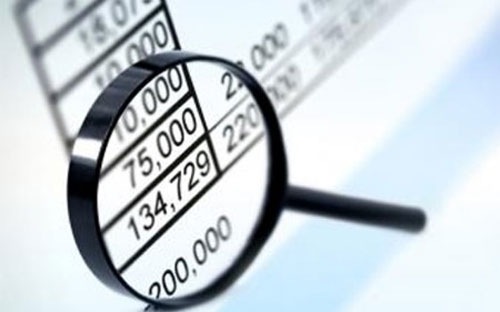State Audit reveals SOEs’ flagrant regulatory abuses

illustration photo
The report, published in late July, uncovered flagrant abuse by state-owned enterprises (SOEs) of regulations on government guarantees for foreign-sourced loans.
Many projects failed to register their assets that would act as collateral, including Cam Pha Thermoelectricity Plant (with a government guarantee of $225.25 million), Ca Mau 2 Thermoelectricity Plant (government guarantee of $216.25 million), Nhon Trach combined-cycle power plant 2 ($164.62 million), Son Dong Thermoelectricity Plant ($247.2 million), and Ha Tien Cement Plant’s production chain 2.2 ($64.17 million).
Government Decree 11/2011/ND-CP on the provision and management of government guarantees states “After the Ministry of Finance issues a letter of guarantee and within six months after the assets are officially received [by authorised agencies], the guaranteed entity shall register its assets as collateral as security for the government guarantee according to the law on security transactions.”
Other SOEs failed to report on progress in the construction of But Son, Dong Banh and Thang Long cement plants, and hydroelectricity projects in Song Bac, Dakrink and Ta Thang.
Many investors also failed to pay guaranteeing fees including Ha Long ($3.9 million), Thai Nguyen ($1.17 million) and Tay Ninh ($340,000) cement plants, and Dung Quat shipbuilding project ($2.28 million).
“The number of projects needing to repay outstanding debts via government guaranteed funds has increased,” said SAV’s head Nguyen Huu Van.
In 2012, the Ministry of Finance paid debts worth $57.43 million for five projects, up $28.73 million against the previous year, including Phuong Nam paper factory, and cement plants of Dong Banh, Thai Nguyen and Ha Long, and Xekaman hydroelectricity plant due to major losses.
The State Audit of Vietnam also announced that many SOEs had violated regulations on the use of state capital and assets. Auditing results of over 32 groups and corporations showed that they would have to repay $87.8 million to the government, with PetroVietnam owing $38.4 million, post and telecommunications giant VNPT $23.9 million, power supplier Electricity of Vietnam $1.84 million and Vietcombank $319,000.
Many SOEs in 2012 also violated regulations on financial investment. Specifically, EVN’s investment exceeded its chartered capital and reached over $1 billion, Vinacomin exceeded their chartered capital by $60.4 million and Dak Lak Rubber Company by $39.6 million.
In its Vietnam economic update report released in July 2014, the World Bank warned that boosting SOE reform would be key to a more competitive economy.
In 2013, the government equitised 74 SOEs, up three times the figures recorded in 2011 and 2012. This year’s first quarter saw initial public offerings (IPO) by 25 SOEs, including 13 corporations.
“However, the equitisation process thus far has mostly focused on small SOEs, and only a small stakes in corporations have actually been transferred to non-state shareholders,” said the report.
The IPOs that took place in the first quarter of 2014 only sold 30 per cent of the planned 355 million shares offered.
“Successful completion of the equitisation target of more than 400 SOEs by the conclusion of 2015 seems unlikely at this point. It may be more effective to set more realistic targets and focus more on the quality of the equitisation process – for instance by concentrating on successful divestment of SOEs that are more attractive to investors,” the report said.
What the stars mean:
★ Poor ★ ★ Promising ★★★ Good ★★★★ Very good ★★★★★ Exceptional
Latest News
More News
- State corporations poised to drive 2026 growth (February 03, 2026 | 13:58)
- Why high-tech talent will define Vietnam’s growth (February 02, 2026 | 10:47)
- FMCG resilience amid varying storms (February 02, 2026 | 10:00)
- Customs reforms strengthen business confidence, support trade growth (February 01, 2026 | 08:20)
- Vietnam and US to launch sixth trade negotiation round (January 30, 2026 | 15:19)
- Digital publishing emerges as key growth driver in Vietnam (January 30, 2026 | 10:59)
- EVN signs key contract for Tri An hydropower expansion (January 30, 2026 | 10:57)
- Vietnam to lead trade growth in ASEAN (January 29, 2026 | 15:08)
- Carlsberg Vietnam delivers Lunar New Year support in central region (January 28, 2026 | 17:19)
- TikTok penalised $35,000 in Vietnam for consumer protection violations (January 28, 2026 | 17:15)
















 Mobile Version
Mobile Version